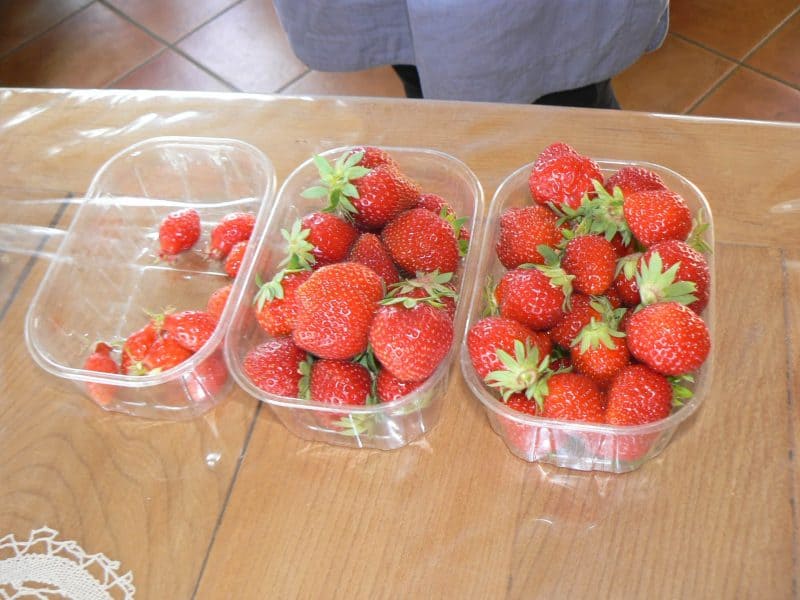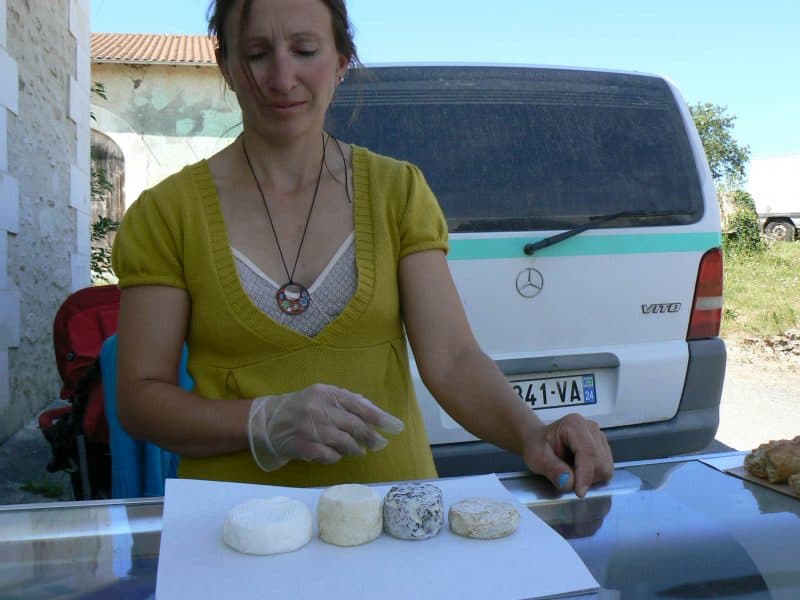Two French Women Who Make Food for the People

We drove out into the countryside today to meet two people who are very involved with the local gastronomy. This is a big part of the appeal of France, that there are so many people who love food and live lives that are involved with producing great food. Our first stop was at the modest home of Marie Paule Chasseigne, who is an expert on the topic of strawberries.
Her mother was also a lover of fraises, and today she grows three varieties of the fruits in a plot of land in an adjacent lot next to her house. She had set before us in her house three trays–one with the tiny garibuette variety, which are only grown and eaten in the spring. Next to these were charlotte, sweeter and plumper and finally, mara des bois, even bigger but not as sweet as charlottes. Marie Paule told us that there are hundreds of species of strawberries and that this year has been a tough one. There’s a varmint with a strange name who looks like a badger who has been eating her berries.
But the worst varmint of all are the neighbors, who last year parked their car and stole 30 of her plants. This year, thieves have stolen 100 of her mature strawberry plants. Mon dieu!

We drove to the market village of Vanxains, where we saw signs for a flea market, and met a woman who sold goat cheese. It turned out that she was the mother of the goat cheese farmer we wanted to meet, so we drove another 12 km to the even smaller town of Sainte Vincent de Connezac to meet Magalie Berry, who is a goat cheese farmer.
She used to be a journalist, working in the city of Tours, but she wanted more. She wanted more meaning in her life, she said, so she moved back home to her parent’s house and borrowed the money to buy 150 goats. Now she sells many varieties of cheese at markets and works many hours.
She bristles when French customers complain about the price. “I got up at 3 am and won’t stop working until 7 pm! Do they know how much work it takes to make this cheese?” Compared to the price of goat cheese in Massachusetts, paying 2.50 euros for a block here is a great deal, I told her. She sighed.
At her stand next to a boulangerie, she let us sample her delicious fresh goat cheese and the varieties which were aged 20 days, or 3 months, while her daughter slept in a stroller next to us. “The French think that if you quit your job, it’s a big problem. They also look at you if you sell cheese and are a farmer, as if you’re poor and have no other choice and they pity you because you are stupid. This IS a choice, I want to bring my daughters to the market, I am content and happy making this cheese, even though it’s a lot of work!”
The good thing about living as as farmer, she said, is that you get milk, and cheese, and many other things for free. Despite the long hours and complaints, it was clear she had made the right decision to ditch journalism and return to the family farm.
